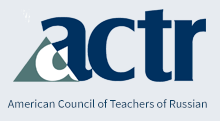Russian Language Journal
Publication Ethics Statement
Russian Language Journal is committed to meeting the highest standards of publication ethics throughout all stages of the editorial and publication process. All participants in the publication process, including authors, peer reviewers, and editors, are expected to adhere to ethical guidelines and best practices for scholarly publishing outlined below. Russian Language Journal seeks to foster trust, accountability, and integrity in academic publishing.
Authors
- Authors of papers reporting on original research must provide an accurate description of the research/work performed and an objective discussion of its importance to the field. All evidence and supporting data should be represented accurately.
- All authors should disclose in their manuscript any financial or other substantive conflict of interest that might be understood to influence the results or interpretation of their manuscript. All sources of financial support for the research project should also be properly acknowledged.
- Each manuscript should include references to published scholarship that allow others the ability to reconstruct the argument. It is unacceptable to intentionally include inaccurate statements or fabricated data and references in the manuscript, which is considered unethical behavior.
- Authors must guarantee that their submitted work contains no content that may be considered as libelous or infringing in any way on the copyright of another party. If the authors have used the work and/or words of others, it has been appropriately cited or quoted, including authors' own work, to avoid unintentional plagiarism and self-plagiarism.
- Submitting the same manuscript to more than one journal concurrently constitutes unethical publishing behavior and is unacceptable. The journal editor will make every effort to process and evaluate submissions in a timely fashion. Should an author decide to submit the manuscript to another journal, they must request the journal editor to withdraw their manuscript from consideration.
Reviewers
- Peer reviewers play a critical role in ensuring the integrity of the publication process. They are expected to evaluate submissions objectively, providing constructive and unbiased feedback to enhance the quality of the manuscript.
- Reviewers must maintain the confidentiality of the manuscript and avoid sharing or discussing it with others outside the review process.
- Reviewers should disclose any conflicts of interest that may compromise their ability to provide an impartial assessment of the manuscript. If a conflict exists, reviewers should recuse themselves from the review process.
- It is the reviewers’ responsibility to identify instances of potential plagiarism, unethical practices, or errors in the manuscript and to report them to the editors promptly.
RLJ Editors
- Editors are responsible for making publication decisions based on the scholarly merit, originality, and relevance of submitted manuscripts. They must ensure that all decisions are free from bias or external influence.
- Editors must maintain the confidentiality of all submissions and correspondence throughout the editorial process.
- Editors should take appropriate steps to investigate any ethical concerns or allegations of misconduct related to submitted or published manuscripts. In cases of confirmed misconduct, editors may issue corrections, retractions, or other necessary actions in accordance with publishing best practices.
- Editors must recuse themselves from handling submissions where they have conflicts of interest, ensuring that manuscripts are evaluated without prejudice.
Errors and Retractions
In the event of significant errors in published works, the journal will publish corrections, retractions, or expressions of concern as appropriate to maintain the integrity of the academic record. Authors, reviewers, and editors are expected to cooperate to address these issues in a transparent and ethical manner.


